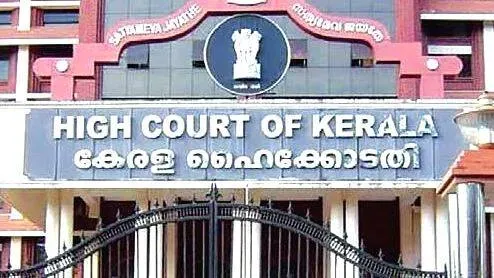In a landmark judgment, the Kerala High Court recently quashed the tenure extension of the Director-General of the Kerala Institute of Local Administration (KILA). The court's decision was based on the grounds that the extension was granted due to political affiliations, compromising the integrity of the institution. This case highlights the critical issue of political influence in administrative appointments and its implications for governance and public trust.
Background of the Case
The Kerala Institute of Local Administration (KILA) plays a pivotal role in training and empowering local self-government institutions in Kerala. The institution's leadership is crucial for ensuring effective local governance and the proper implementation of developmental programs. The tenure extension of KILA's Director-General (DG) became a contentious issue when allegations surfaced that the extension was granted based on political considerations rather than merit or institutional needs.
Court’s Observations on Political Influence
The Kerala High Court scrutinized the process and rationale behind the DG’s tenure extension. The court found substantial evidence suggesting that the extension was influenced by political affiliations, undermining the principles of transparency and meritocracy. The court emphasized that administrative positions should be filled based on qualifications and performance rather than political loyalty. This practice, the court noted, erodes public trust and hampers the efficiency of public institutions.
Legal Framework and Principles Violated
In its judgment, the High Court referred to several legal principles and frameworks that were violated by the tenure extension. The court highlighted the importance of adhering to constitutional values of fairness, impartiality, and non-partisanship in public appointments. The judgment underscored that any deviation from these principles not only violates legal norms but also sets a dangerous precedent for future appointments. The court stressed the need for a robust mechanism to ensure that administrative appointments are free from political interference.
Implications for KILA and Similar Institutions
The court’s ruling has significant implications for KILA and other similar institutions. It sends a strong message about the necessity of maintaining the autonomy and integrity of public institutions. For KILA, the judgment is a reminder of the importance of upholding its mission of fostering effective local governance through unbiased and competent leadership. The ruling is expected to lead to reforms in the appointment process, ensuring that future leaders are chosen based on merit and institutional requirements.
Reaction from the State Government
The state government’s reaction to the judgment has been mixed. While some officials have acknowledged the need for reform in the appointment process, others have expressed concerns about the court’s intervention in administrative matters. The government’s response will be crucial in determining the future course of action and the implementation of the court’s directives. Ensuring compliance with the judgment will be a test of the government’s commitment to upholding the principles of good governance.
Public and Political Reactions
The court’s decision has elicited varied reactions from the public and political circles. Many civil society groups and political analysts have welcomed the judgment as a step towards greater transparency and accountability in public administration. They argue that the ruling could deter future attempts to politicize administrative appointments. On the other hand, some political factions have criticized the judgment, viewing it as an overreach by the judiciary into executive functions. The public reaction underscores the contentious nature of political appointments in India and the broader implications for governance.
Future Directions and Recommendations
The Kerala High Court’s ruling provides an opportunity for introspection and reform in the appointment processes of public institutions. Moving forward, it is imperative to establish clear and transparent criteria for administrative appointments that prioritize merit and institutional needs over political considerations. Strengthening oversight mechanisms and ensuring greater public participation in the appointment process can also help mitigate the risks of political influence. Additionally, regular audits and reviews of appointments can ensure compliance with legal and ethical standards.
Conclusion
The Kerala High Court’s decision to quash the tenure extension of the KILA DG is a significant step towards ensuring the integrity and independence of public institutions. By addressing the issue of political influence in administrative appointments, the court has highlighted the need for transparency, meritocracy, and accountability in governance. The ruling serves as a reminder of the foundational principles of the Indian Constitution and the importance of upholding these values in all aspects of public administration. The state government’s response and the implementation of the court’s directives will be critical in setting a precedent for future appointments and ensuring the effective functioning of public institutions.










0 Comments
Thank you for your response. It will help us to improve in the future.